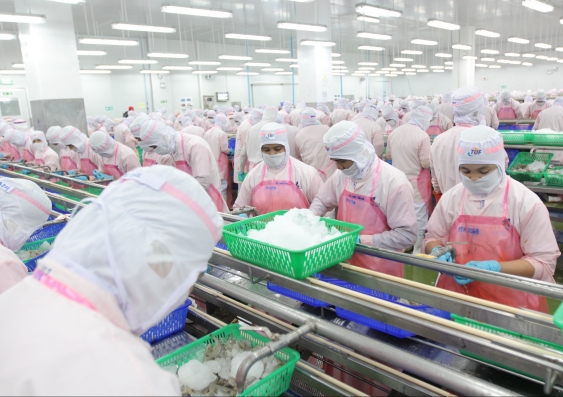Companies support stronger modern slavery laws: new research
The third report in a multi-year collaborative project shows strong support from business for strengthening the Modern Slavery Act.
The third report in a multi-year collaborative project shows strong support from business for strengthening the Modern Slavery Act.

A coalition of human rights organisations and academics has today released a new research report revealing the results of a detailed survey of nearly 90 business groups on the impact of Australia’s Modern Slavery Act. It is the first in-depth study using both survey and focus groups to examine business responses to modern slavery in Australia.
The report, Australia’s Modern Slavery Act: Is It Fit For Purpose?, finds that 70 per cent of survey participants support the establishment of an Anti-Slavery Commissioner.
Sixty-seven per cent said they would find it easier to comply with the Modern Slavery Act if it were harmonised with international standards such as the UN Guiding Principles on Business and Human Rights, and 61 per cent would likely improve modern slavery responses if required to undertake human rights due diligence.
The report also found 54 per cent would likely improve modern slavery responses if financial penalties were introduced.
Professor Justine Nolan, Director of the Australian Human Rights Institute and a Professor in the Faculty of Law & Justice at UNSW Sydney, says the research shows there remains a wide gap between a company’s paper promises and implementing changes in practice.
“Business is generally supportive of levelling the playing field so that reforms to the Modern Slavery Act will drive more substantive responses to prevent and remedy modern slavery,” she says.
The research also investigated company approaches to remedying modern slavery in supply chains, finding that failing to engage stakeholders presents a major barrier to remediating modern slavery, while increased transparency between companies and their suppliers results in more effective remediation practices.
RMIT Associate Professor Shelley Marshall says both the survey and focus groups show a surprisingly strong appetite from business for reform of the Australian Modern Slavery Act and a desire for more government support and action with the creation of an Anti-Slavery Commissioner.
“Although the Modern Slavery Act is driving awareness of the importance for Australian business of addressing modern slavery in operations and supply chains, it is not yet improving the conditions of workers or remediating instances of modern slavery,” she says.
The coalition of human rights groups is calling on the government to strengthen the legislation by:
Freya Dinshaw from the Human Rights Law Centre says the findings from this survey show strong support from business for strengthening the Modern Slavery Act.
“Right now, there is little evidence the law is driving meaningful action by companies to lift conditions for supply chain workers at high risk of exploitation,” she says.
“In order to be more effective, the Act should be amended to require companies to take action to address modern slavery risks rather than just reporting on their current practices. There must be penalties for companies that fail to comply, and robust oversight and enforcement by an independent Anti-Slavery Commissioner. We urge the government to use the current statutory review to make these key reforms to strengthen the law.”
Australia’s Modern Slavery Act: Is It Fit For Purpose? is the third report released in a multi-year collaborative project evaluating company responses to Australia's modern slavery reporting regime, and follows earlier reports Broken Promises and Paper Promises.
The Modern Slavery Act 2018 (Cth) is currently under a three-year statutory review lead by Professor John McMillan, which ended on 31 March 2023. The review is expected to be released publicly in coming weeks.
The research was undertaken by academics from the Australian Human Rights Institute at UNSW Sydney, Business and Human Rights Centre (RMIT), the University of Melbourne, the University of Notre Dame Australia, the University of Western Australia and Willamette University, together with the Human Rights Law Centre and the Business & Human Rights Resource Centre.